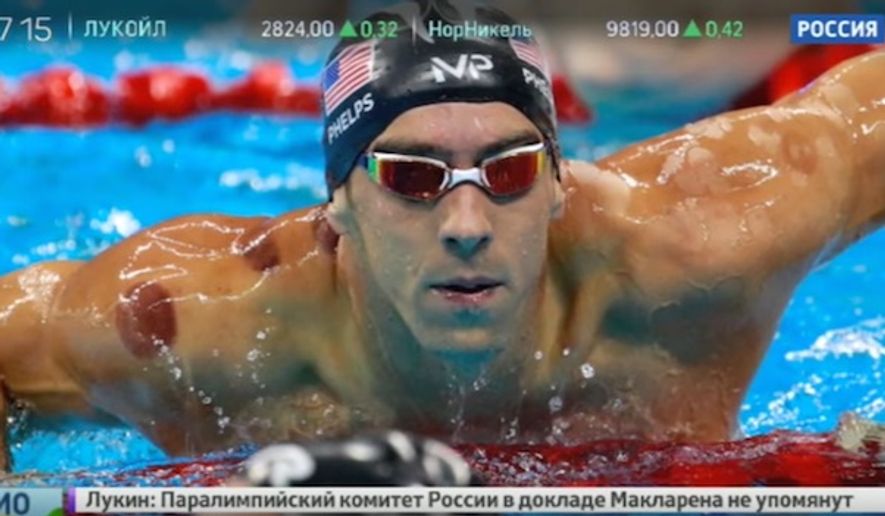Russian state TV attempted to strike a moral equivalence on Monday between prohibited meldonium doping and Michael Phelps’ decision to use the ancient Chinese “cupping” practices after training sessions.
Mr. Phelps, 31, raced to his 19th Olympic gold medal on Sunday as part of the U.S. men’s 4x100 meters freestyle relay. Russian media soon likened marks on the athlete’s body — the result of creating a partial vacuum on the skin to promote blood flow — to illegal drug use under International Olympic Committee (IOC) regulations.
“Following the Hollywood trend, the method was adapted by athletes,” a news anchor for Russia 24 said Monday, Mashable reported. “According to them, vacuum-based massage improves circulation and overall well being, suggesting that muscle repair happens faster after physical exertion. In other words, the net effect from such practices in many ways, is not unlike those of meldonium.”
Russian athletes have been punished for testing positive for meldonium. The World Anti-Doping Agency (WADA) added the drug to its list of banned substances in January.
Russia is manning a team of 271 athletes for the 2016 Olympic Games after a last-minute reprieve by IOC. The nation could have been denied the ability to participate in the games after an independent investigation found evidence of state-sponsored doping during the 2014 Winter Olympics in Sochi.
“I think in this way, we have balanced on the one hand, the desire and need for collective responsibility versus the right to individual justice of every individual athlete,” IOC President Thomas Bach said during a July 25 conference call, Reuters reported.
• Douglas Ernst can be reached at dernst@washingtontimes.com.




Please read our comment policy before commenting.